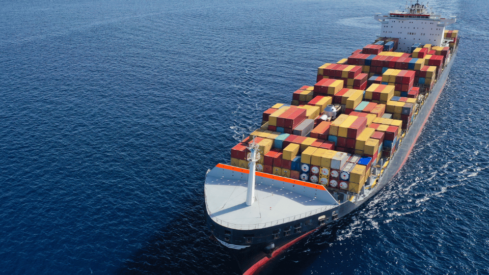Analysis: Black Sea grain deal is on the verge of collapse days before its extension deadline

Non-renewal would have direct implications in sourcing raw materials for pet food.
A total of 32.8 million metric tons of grain have been exported under the Black Sea Grain Initiative since its inception last July. The deal has been a safe passageway to export grain—a key ingredient in pet food—from Ukraine since the start of the war. But until when?
The chances
The expiration date of the current deal is approaching, and by July 17, all parties involved are currently negotiating if there will be an extension of the agreement.
For supply chain expert Samir Dani, the chances of this renewal are still a mystery. Dani, an Operations and Supply Chain Management Professor at UK’s Keele Business School, says that the United Nations (UN) is unlikely to budge on Russia’s multiple requests regarding imports and exports, financial sanctions and mechanisms for insurance and cargo.
“It looks like the grain deal will not be renewed—at least at the moment,” he says.
The renewal also comes at a critical moment for Russia, whose ammonia pipeline has recently been significantly damaged. Ammonia is a key ingredient in fertilizer and, therefore, essential for grain production.
Moscow blames Ukraine for the destruction of the ammonia pipeline, which runs from Togliatti in Russia to 3 ports in Ukraine, transporting around 2.5 million tons of ammonia per year. The Kremlin has previously stated that it would not extend the Black Sea grain deal until the pipeline is fixed.
Direct consequences
As the outlook of renewal looks unlikely, the UN has asked for shipments to be expedited out of 2 of the 3 grain-export-related ports before the expiry date in a few days.
A non-renewal of the Black Sea grain deal could greatly impact the pet industry, especially as most grain exports reach higher-income countries with higher pet populations.
“Pet food is part of the chain, so of course, animal feed is going to be impacted,” admits Professor Dani, who also points out a possible price increase in pet food products if the deal is not renewed.
Megan Hesketh, Senior Analyst on the UK’s Agriculture and Horticulture Development Board (AHDB), agrees: “Cost would have a big impact on the pet industry if the agreement is not renewed.”
“Ukraine may need to lower domestic prices to remain competitive in the market, especially if grain is going to become more costly to transport,” she adds.
According to Hesketh, the current grain supply “looks to be ample to meet current demand levels.” However, wheat is more “finely balanced” due to the impacts of the war.
Wheat prices have been experiencing considerable pressure, with price records of £350 ($445/€406) per ton. Recently, prices have come back down and sit around £200 ($254/€232) per ton. Although, the AHDB warns that these lower prices could climb again if the grain deal is not extended.
According to UN figures from earlier in the year, corn and wheat made up the majority of food exports (77%) from Ukraine, followed by sunflower meal and oil (11%) and barley (4.3%).
Other grain export methods
Ukrainian officials have said with confidence that they could move grain exports to railroad and river transport if the Black Sea deal is not extended. But this option is more costly in terms of both time and money.
Furthermore, the price impact within Ukraine could mean farmers are incentivized to grow less, leading to an almost permanent reduction in Ukrainian output. As a result, countries would need to look elsewhere for grain to make pet food.
However, looking to other grain markets could also be a challenge as adverse weather conditions continue across the globe, with major market players like the US experiencing drought.
Hesketh also says these temperatures are particularly impacting US corn (also known as maize) production, which is key to the global supply and demand of total grains.
